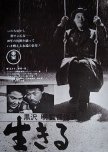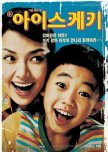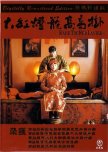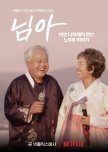
This review may contain spoilers
"Tastes of life"
My Wiggly Friend takes viewers on a taste tour of rice noodles in China. The documentary covered different dishes as well as the devoted chefs who lovingly prepared them. Each short episode focused on three different restaurants from three different regions. First developed in Jiangxi 1800 years ago, Jiangxi alone produces more than 1.4 metric tons of rice noodles a year! Suffice to say this documentary only opened the door to a wider array of noodle creations.Episode 1 covered Sour Noodles made by a bad-tempered chef with tomatoes that had been fermented for a year. The dish was garnished with Litsea oil. In another city, two brothers created River Snail Rice Noodles with pickled bamboo shoots. The draw for customers was the "stinky" aroma. I'm not sure if it was a bad translation but the narrator called the pickled bamboo shoots a "biochemical weapon." At the last place, an older couple made Old Friend Rice Noodles out of pork and chicken, fermented black soybeans, and fermented bamboo shoots. The "stinky" soup was said to make you "sweaty and full". All of the dishes were described as strange which could have been a subbing problem.
Episode 2 began with truck drivers stopping at a 24-hour truck stop where Mutton Rice Noodles were served by a mother and daughter. The soup began with a goat skeleton being used to make the broth. Scalding Rice Noodles was the next stop with father and son chefs. They were known for their spicy tripe noodles. The father tested his son's ability to make Rice Noodles with Eel Gravy before agreeing to hand the restaurant over to him. Finally, Termite Mushroom and Chicken Rice Noodles was cooked by an older chef for his wife using his family's traditional method of slow cooking it in a wooden chest.
Episode 3 began with a family famed for their Lard Stirred Noodles made with lard extracted from pork belly. Next a bickering mother-in-law and daughter-in-law sold Spicy Noodles out of their food truck to hungry office workers. Lastly, was the bland but strong Brine Soaked Noodles with crispy pork and pickled string beans described as something of which you "cant dodge the strong smell".
Episode 4 was for the more adventurous as it featured a small breakfast shop in a market across from an open-air butcher. The sour and bitter soup was made using cow intestines with the digested grass still inside-Beef Sapei Noodles. It was accompanied by fried beef skin. From turf to surf, the next culinary adventure was Seafood Rice Noodles made with fresh seafood and sand worms. The last stop in the episode was food from the mud-Cattail Root Rice Noodles made from Cattail roots and jellied pork blood.
Episode 5 explored different shaped rice noodles. The first up was a dish made by a rice roll master who filled Cloth Rice Rolls with meet or eggs, like one might a crepe or burrito. Stop 2 featured Diamond Rice Stir Fry and also a beef bone soup with rice lumps. The final visit was to a place where the chef made Duck Soup with Rice Pellets. Said to have a mild flavor, it was good for children and older people because it required little chewing.
Most of the restaurants shown were run by families or friends and had been in business from 20-50 years. Some of the people gave back by teaching a new generation the old techniques. The people running the businesses and cooking, like hard working people in the food industry everywhere, worked long hours. They were all doing something they loved and found rewarding, but it was time consuming. The documentary could be heavy-handed with the older couples being romantic and glossing over the families where the children of the busy owners missed out on attention. I did feel bad for the son being tested on the eel rice noodle dish. He'd been cooking since he was twenty and it took his elderly father over twenty-five years to give him a compliment!
I can't say that the majority of dishes made my mouth water but I'm fascinated with what people eat and how they prepare the dishes. It was also interesting how different places utilized the local food sources whether it was termite mushrooms or sand worms. The photography was skillful during the food preparation scenes and also gave glimpses into the varied cities and villages. Word of warning: if you are a vegan or squeamish you may want to avoid this show as there were butchering scenes and numerous animal prep scenes.
I enjoyed the insight into the creative and dedicated cooks who not only worked to keep traditions alive but innovated as well. If you enjoy food documentaries, this ode to China's love affair with rice noodles would be worth a try.
"Those who work hard definitely have some good luck."
3/25/23
Was this review helpful to you?

This review may contain spoilers
Misfortune Teaches Us the Truth
What would you do if you had six months left to live? When we are young, aflame with dreams and a perfect view of what our world will be we never think that one day due to life circumstances we might become a mere cog in a machine and the weight of corporate or public bureaucracy will extinguish that flame with its inertia crushing in on us. If we are not careful each day can become the same without making any difference in the world. Director Kurasawa breaks through the darkness of merely enduring the days by elevating a civil servant nicknamed "The Mummy" who hasn't really lived in 20 years to hero status. The hero's journey is not without suffering and heartache, and a behemoth of a monster to face before he leaves this plane of existence. With the sands of the hourglass rapidly streaming out he has one goal to reach, one thing to do to have made his life worth living and in the final moments to give it meaning.Ikiru begins with a death sentence being handed out to the Public Works Chief, Watanabe Kanji. Watanabe sits at his desk stacked high with papers just as he has for 30 years without taking a sick day, shuffling and stamping the papers validating his reason for being there. Once 20 years ago, he submitted a proposal for making the job better only to be shot down. Now he uses the proposal pages to wipe his glasses.
Upon finding out he has stomach cancer he is devastated. Kurasawa gave us a brilliant scene as Watanabe leaves the hospital so absorbed in his own thoughts that the world is silent. When he is jarred into reality the loud noises of life intervene once again. His son and daughter-in-law only want his money to buy a house and don't even ask what's wrong when they find him sitting in the dark. With no one to talk with, in a powerful moment he covers his head and cries himself to sleep.
At a chance meeting in a bar, Watanabe meets a small time writer. The writer plants seeds in his brain about no longer being a slave to life but being its master. Never having ordered a drink before Watanabe asks for help in having a night of fun out. The writer takes him out on a raucous night on the town. At their last stop the piano player asks for suggestions and Watanabe asks for "Life is Brief". In a low deep voice, the older man sings as the pianist plays silencing the revelers around them as the listeners reflect on the words of the song and Watanabe's grief.
A young girl from his office shows up the next day at his house because she needs his stamp to hand her resignation papers in. When he asked why she is leaving she tells him the boredom is killing her, that the only thing of interest that's happened in over a year is when he didn't come into the office. Her youthful exuberance and their casual meetings lay the step for his next revelation. He needs to make something to feel useful and relevant. Happy (Re)Birthday Watanabe Kanji!
With the energy of a man possessed he determines to answer the pleas of some local women who have been given the run around about a cesspool in their neighborhood. The women want it filled in and turned into a park but had been shuffled between 20 different departments before being sent back to Public Works.
The film jumps to his funeral and the last half of the movie is shown in flashback as the mourners piece together his motivations and what courageous steps he took as he fought the machine he was a cog in by wearing it down to have the park built. At first the upper echelon patted themselves on the back saying he had nothing to do with the new park. After they leave the cogs in different departments start comparing notes and realize how hard he fought even as he was dying to do something worthwhile, no small feat in a world of petty bureaucratic fiefdoms.
The cogs are jarred out of their complacency and vow to make a difference and not let the machine kill their desire to make meaningful changes. But as they find out as well, the machine doesn't like change, making Watanabe's work all the more heroic.
There are moments in Ikiru that will give you pause, make you misty-eyed, and even laugh. As the mourners gossip and take credit your blood will boil at the injustice and cause you to cry out for Watanabe. The silenced voices of small cogs eventually join the viewer in being advocates for the man willing to change and willing to make a change, regardless of the cost. A man no longer afraid to keep persevering in the face of the word "no". No longer having the time or energy to hate. No longer afraid of death. This hero had only one enemy-time and only one super power-tenacity.
Watanabe had faced an existential crisis. Not only had he been handed a death sentence but he was faced with the realization that he had only been going through the motions for 20 years, wasting the precious gift of life. We are all handed a death sentence the moment we are born, we just don't know its date. Ikiru is a beautiful film that asks the viewer as much as the central character to self-reflect on their life and its meaning, whether it is being lived with purpose. The final scene of Ikiru is poignant and reminds us all that Life Is Brief, remember to live it while you can.
9/16/22
Was this review helpful to you?

This review may contain spoilers
"Only sincere ones need apply"
If You Are the One is a pragmatic love story infused with gentle humor, but not your typical romcom. Stars Shu Qi and Ge You were able to cover over the obvious problems with the story with their enormous likeability.Ge You played Qin Fen, a 40ish man, who had recently come into money and was ready to find a wife. He found a dating site and listed his honest qualifications and what he expected in a spouse. "Only sincere ones need apply". Of course, at his age and prerequisites he had several humorous takers including a woman selling grave plots, a stock broker who assessed his continually devaluing worth, and an old Army buddy who had hoped he'd changed teams. One of his blind dates was with Smiley, the luminous Shu Qi. It didn't take long for the two to realize that they weren't compatible but they ended up going for drinks and revealing their dark secrets in a very human moment. Smiley, it turned out, was in love with a married man who kept dangling marriage in front of her but who was unwilling to leave his wife.
Though the two swore to never see each other again, destiny had other plans. Serendipity kept dropping them into each others' paths. Smiley decided to become Qin Fen's girlfriend with the caveat that her heart still belonged to her ex-lover though she would never act on it. The two take a trip to Hokkien, Japan for her to make peace with her decision and hopefully leave the memory of her lover behind. The incongruous couple engaged in a long road trip with Qin Fen's tour driver buddy Wu Sang. Realizing his good fortune of a lovely, young girlfriend Qin Fen stopped at a Buddhist temple to pray only to interrupt a Yakuza funeral. He later went to a Catholic chapel where he confessed every sin since kindergarten to a priest who didn't speak Mandarin, finally driving the priest to tell him he needed a bigger cathedral to confess in because the chapel was too small to hold all his sins!
If You Are the One was not a typical head over heels falling in love film with a race to the airport at the end. It was far more practical as Qin Fen reflected upon his lonely life and Smiley realized her great love affair was not going anywhere, that maybe the two misfits could rely on each other and love would slowly bloom from friendship.
The second half of the film devolved into more of a scenic Japanese road trip, though the scenery was beautiful. There was also a nice tour of the West Brook Wetlands and Hangzhou earlier in the story.
It would be hard to fault the acting, Ge You and Shu Qi played their roles brilliantly. The lapses come in the narrative. The huge age gap between the two was never directly addressed. Why gorgeous Smiley was attracted to a bald, cranky middle aged man, especially when she was hopelessly in love with her sexy lover also was glossed over. Shu Qi did an amazing job as the emotionally wounded character, unable to find meaning in her life without her lover, utterly drowning in despair. As pragmatic as Smiley was though, it was difficult to understand some of the decisions she made over a failed love affair.
There were some interesting topics brought up that I haven't seen in recent movies. A gay character was introduced as something completely normal, clearly against more recent rules. During Qin Fen's blind date with a Taiwanese woman, the two debated whether there had been a liberation or a regime had fallen in regards to the exodus to Taiwan during the 1940's. And finally, a woman was reported to the authorities for wanting to find a way to stay in the United States. Usually, these sensitive subjects aren't broached.
For a slow burn romance with scenic cinematography and more than capable acting, If You Are the One is a nice change of pace from so many frenetic romantic comedies. It could be uneven at times but Shu Qi and Ge You managed to charm me enough to enjoy my time with them.
9/7/22
Was this review helpful to you?

This review may contain spoilers
Ice Bar delivers a nostalgic, joyful story that goes down like a soothing ice bar on a hot summer day.Enthusiastic ten-year-old Young Rae and his single mother struggle to make ends meet in 1960's Korea. His mother sells smuggled cosmetics and gets into fights using most of her money on fines and not on Young Rae's tuition. Young Rae is often the target of harassment because he's a fatherless "brat" though he can give as good as gets. His best friend, Dong Su, is an orphan who hustles to make money anyway he can, and during the summer it's selling ice bars. The summer starts off with a bang when Young Rae hears his mom's drunk best friend tell him that his father is not dead, but alive and well in Seoul. His mother denies it, but Young Rae determines to make enough money to take the train to Seoul. Dong Su hooks him up with a job selling ice bars through his shady boss at the factory and that's when the fun begins. Young Rae struggles with ice bar turf wars and bullies and written and unwritten rules about where he can and can't sell. Finally, with some help from Dong Su and a young man, In Bak, the son of a "commie", who works at the factory he starts to figure out how to successfully sell the frozen treats.
The boys get into and out trouble, with no severe consequences for the most part. The biggest hurdle for Young Rae aside from earning the money is his mother who is firmly against him finding his father for fear he will take her son away from her.
Ice Bar is a lighthearted comedy that occasionally dips its toe into melodrama only to rise to a bubbly surface once again.
Park Ji Bin's bright performance as the young entrepreneur was the heart and soul of this film. His laughter and tears were infectious and touching. Future ahjumma Shin Ae Ra as his mother managed to turn what could have been a shrewish role into a sympathetic one, never letting you doubt her love and devotion for her son.
The pace of the story kept the events moving forward, tying together small side stories in aid of Young Rae's goal. Much of the action was child high, taking us on their adventures running through the streets and down to the train station. There was a real feeling of community among the regulars in the scenes as they interacted with the boys. Certain sets could feel artificial, but the characters' interactions made up for the almost play like settings.
Though a largely child friendly film, told through Young Rae's eyes, it does have the typical bullying and hitting so many older Korean movies and dramas have. There is also a disturbing incident in the last quarter of the film. Despite those detriments, Ice Bar is a feel-good movie with an effervescent score and delightful performances. Though narrow in scope, it's big in heart.
If the ending felt a bit contrived, that's okay, ice bars during childhood summers are meant to be enjoyed and not suffered through.
Was this review helpful to you?

The cinematography is dark and melancholic, reflecting the mood of anger, guilt, sadness, and regret. The score embraces those same feelings.
JDY gives a good performance as the angry son, Zhen Chen, who travels from China to South Korea to find his mother due to his dying father's wish. What he finds only deepens his anger and resentment. Lee's mother shows restrained emotions, a woman who has long dealt with sacrifice and hardships. The story deepens when a disappointed Zhen Chen on the return trip home finds the diary his mother left him and her long buried secrets and his are slowly revealed.
The film dips into the overly dramatic waters on occasions, but never completely sinks into them. Though not for everyone, and not a perfect movie, I found the struggles of this mother and son compelling.
Was this review helpful to you?

This review may contain spoilers
"People are ghosts, and ghosts are people."
The cold stone complex with glowing red eyes in Zhang Yi Mou’s Raise the Red Lantern bids young women into its luxurious lifestyle. Afterall, it’s just as easy to marry a rich man as it is a poor man. Or is it?Gong Li stars as Songlian the newest concubine of a rich man in this gilded cage of competitive horrors. Educated but with few options after her father dies she marries an older man. She quickly learns that the women and servants are pitted against one another in a popularity game to garner the master’s favor. Red lanterns are lit in the courtyard and living apartment of the woman he chooses for the night. The clickety clack of massage hammers used on the chosen one’s feet turns into a Pavlov’s bell for the women. The master’s idea of foreplay is something akin to “brace yourself darlin’” but the women do what they must to attract his attention and keep it.
Other than the privileges the chosen one temporarily receives, the concubines hold no power. They are largely interchangeable, this is the territory of the powerful master and his game and rules. The women’s fate is tied to pleasing him and gifting him sons. In the ruthless conflict between the concubines, betrayal and tragedy are always near at hand.
Master Chen’s face is never focused on. His is the face of oppression and rigid familial customs, the ringmaster in the tragic circus.
Songlian discovers that the people in the huge complex are largely ghosts living in the house abiding by the rules of ancestors long gone. She tries to rebel, game the system, and in the end becomes ostracized and alone. When she witnesses an unspeakable act she realizes that she is trapped with only two ways out-death or madness.
Raise the Red Lantern criticizes a number of social structures as well as the plight of women during this time. Outdated cruel traditions that guide their everyday life are firmly in the director’s bullseye. It is gripping and difficult to watch at times.
Songlian is not an easy character to like as she can be very abrasive and snobbish. Her youth and independent nature cause her to chafe under the ridiculous rules and volatile hierarchy. She learns the hard way the price for disobedience. Gong Li’s expressive face helps us to understand how we should feel as well. Rebellious. Trapped. Isolated. Horrified. She gives a gloriously understated performance as a young woman caught in the chains of family customs; the players involved more like ghosts ensnaring fresh faces to drag into their macabre story.
Zhang Yi Mou saturates some scenes in a rich red light, the color of birth, life, and death. At other times an icy blue hue overtakes the scene driving home the solitariness of the one not chosen. The large complex could almost be given a credit as well the way Zhang lovingly uses the stunning architecture to showcase the concubines’ limited stone world. There was no soft place to land amongst the hard edges. The lush colors of their costumes played in stark contrast to the institutional banality. It was a remote facility both physically and emotionally.
The sets, concubines, and costumes are intoxicatingly beautiful but lying beneath them is a grotesque cruelty. Raise the Red Lantern is a treat for the eyes as most of Zhang Yi Mou’s films are. Though difficult to watch this story of the powerful’s abuse of women and tradition is one worth trying.
“What do people amount to in this house? They’re like dogs, cats, or rats, but certainly not people.”
1/12/23
Was this review helpful to you?

Delicately crafted and emotionally engaging
If you've had a bad day or are feeling down, I can't recommend this short film enough. Come walk with a 90-year-old woman as she puts on her best dress and shoes to go out and buy tangerines in A Day.Grandmother finishes the last tangerine for her breakfast as the good spirited, but invalid Grandfather lies on his mat. On her way to the fruit stand to purchase more tangerines she meets women in various stages of life---a child singing on her tricycle, a harried woman in her car, a middle-aged woman hustling for every cent, and a young girl creating paper airplanes out of memories. Grandmother observes and interacts with them with humor and generosity.
The acting is beautifully natural and compelling with few words spoken. Gentle, classical music flows in the background. History reminisced becomes reality rewarded with a tangerine. An undercurrent showing the hardships of elderly poverty never drives away the hopeful mood. Oozing with kindness and bittersweet reflections, A Day is a day trip worth visiting.
“All the time it is the same, ‘Tick tock, tick tock.’”
20 November 2024
Was this review helpful to you?

"I went far away only to find nothing was different"
The Breaking Ice was a slice of life film that was more mood than plot. Filmed during the frigid winter in Yangi, China near the North Korean border, the snowy mountainous setting was easily the fourth main character in the story of three young adults disenchanted with their lives and in need of healing and connection.Na Na leads tours in the Korean prefecture of Yanbian and doesn’t hesitate to ask for tips and good reviews with a smile on her face. Han Xiao works at his aunt’s restaurant in Yangi where Na Na brings the tour groups to eat. Hao Feng has come to town for a wedding. He spends most of his time dodging phone calls about his missed mental health appointments and staring down from the building wondering whether he has the courage to jump. He sees Na Na’s tour group and joins it the next day. When Na Na lets her mask slip around him, he finds a kindred spirit. After his phone is lost with his virtual wallet, Na Na invites him to dinner with Xiao. The three drink, dance, and later sleep it off at Na Na’s apartment. The next day they jump on Xiao’s motorcycle and travel on their own tour of the area.
“Whether I like it or not, I still have to do it.”
Zhou Dong Yu managed to lift dour Na Na above the material and give her emotional depth where the script did not. Liu Hao Ran brought a fragility to Hao Feng even though the writers were stingy with his backstory. Qu Chu Xiao’s Han Xiao wisely underplayed any jealous feelings Xiao might have had as Na Na and Hao became more intimate. The men’s friendship overcame hurdles that would usually derail them. Xiao was a good apple who even gave Hao a coat when they went hiking in the knee-deep snow, showing that the German saying, “There is no bad weather, only bad clothes,” worked in China as well. Though Xiao wasn’t a well-developed character his compassion toward a stranger was revealed in different significant layers.
“I’ve been away so long, I’m not even sure where home is.”
Xiao and Na Na had moved to Yangi and became stuck professional and emotionally. Both of their jobs had been adversely affected by the pandemic and both dealt with family separations. Hao may have had a good job in Shanghai, but he was equally disaffected. The three people were as isolated and closed off as the snow-covered mountains surrounding them. Yet they found warmth and healing connections as they spent time together.
“I don’t want to be alone.”
Director Anthony Chen and cinematographer Yu Jing Pin created beautiful shots of ice and mountainous roads and trails, lighting everything with exquisite care. The interior shots in contrast were warm, although the clubs highlighted the remoteness of the individuals as they drank and danced in the crowd. The film was gorgeous to watch and the music set the mood perfectly. The acting was all on point. My only complaint is that little was revealed about the characters, especially Hao Feng. Sometimes I had to create my own dots to connect. Despite my reservations, I quite enjoyed this film of three people reaching out and accepting each other where they were for the time they had together.
2 November 2024
7.75
Was this review helpful to you?

Be careful what you wish for!
What happens when a lonely nerd uses an ancient spell to summon love? He ends up with My Undead Yokai Girlfriend. A mix of comedy, romance, friendship, the supernatural, and mystery, Boku no Itoshii Youkai Girlfriend had a little bit of everything.University student Hachi and his friends belong to an E-games team called the Underdogs. After a “romantic” betrayal, desperate Hachi and his friend Tanuki use a forbidden spell book to conjure him a girlfriend. The girlfriend ends up being a nine-tailed fox, Princess Izuna Imiki whom Hachi calls Izzy. Izzy’s first priority is getting laid so that she can stay in the human world. It will also bind her to Hachi and him to her. Izzy’s other goal is separating the heads of her enemies from their bodies so that she can release the other yokais from the place where humans trapped them---The World of Nothing and Timeless Darkness. Along the way evil humans conjure zombies and strive to stop Izzy from completing her goal. Hachi isn’t sure how to handle this new girlfriend who appears to be a serial killer.
I would have rated this cute drama higher if not for some of the acting. Sano Hayato’s Hachi drove me to distraction with his over-exaggerated acting and Hachi’s childish behavior. It was painful to watch. Some of that is on the writers to be sure. The female cop also behaved childishly and erratically while the other cops played their roles straight. On the other hand, I loved Yoshikawa Ai’s portrayal of Izzy. Izzy was strong and didn’t act like she’d eaten too much sugar. Not everyone can pull off a warrior princess role but she did a good job. The Underdog gang was a mixed bag of characters. I enjoyed Tanuki and Hikari’s budding romance. A word about best friend Tanuki played by Anthony. I’ve seen rather crass comments about his casting. Anthony is Japanese, born to a Japanese mother and American father. His father died when he was two and his mother married a Japanese man when he was five. As he said of growing up, “There were girls and boys and then there was me, this mysterious black being.” He grew up around Tokyo and doesn’t speak much English because he is Japanese and was raised Japanese. So bitch about the Amazon and Coke PPLs all you want but this man does not deserve the ire for not fitting some people’s narrow view for Jdrama casting. I’ll get off my soapbox now.
The production values were uneven but in a story like this it wasn’t terribly important. Some random thoughts…The producers must have spent most of their money on the special effects as the sets weren’t very memorable. A wealthy lawyer’s office looked more like a storage room. I thought it was interesting that several characters had blue streaks in their hair like you might see in comic books. Bonus points to the drama for working one of my favorite songs, Chicago's Hard to Say I'm Sorry, into the story. Demerits for a Coke float that had ice in it! Lastly, anyone who knows me knows I have kinemortophobia. Hate zombies and the zombies in this drama were creepy. But even I have to admit peering through my fingers that trying to figure out how many zombies you can fit in a VW van was funny.
My Undead Yokai Girlfriend was entertaining. The ending left room for a second season though that remains to be seen. Maybe enough time will pass so that Hachi can grow up and control his emotions better as he discovers how deeply entwined he is in the supernatural goings on. I would definitely be open to seeing more of Princess Izuna Imiki’s story.
10 October 2024
Was this review helpful to you?

Neomu masisseoyo!
Jinny’s Kitchen S2 added a new cast member and took the show to scenic Iceland. With cold winds whipping across Reykjavik, the team served up nourishing hot soups to warm their customers.Lee Seo Jin-“Boss Dimples”, Yung Yu Mi-“Queen of Serenity”, Park Seo Joon “Ace Pitcher”, Choi Woo Shik-“Class Clown”, Go Min Si-“Rookie MVP”, and Relief Dishwasher-“Mr. Beanie” manned the dining room and kitchen doing their very best to give Iceland delicious Korean dishes. Unlike Mexico where the crew served up very simple dishes, the cast took cooking lessons to be able to prepare the more complicated soups which required more prep work as well. Also, unlike Mexico, where Woo Shik had to try and drum up customers on the boardwalk, the line wrapped around the block on the first day much to the cast’s surprise!
Once again, the cast showed off their cooking skills, this time under greater pressure with a continually full dining room. My absolute favorite was Go Min Si. She was quite impressive as a prep chef, Dolsot Bibimbap preparer, dishwasher, and pretty much anything else the head chef of the day needed. She never complained and simply stepped up and did whatever needed to be done no matter how tired she was. Yu Mi was the epitome of calm and organized as usual. Seo Joon managed 6 or more burners with his intense organizational skills. Woo Shik had his day as head chef dancing and joking but also taking the food seriously. He and Seo Jin also took care of the customers in an orderly fashion.
There was a wide variety of customers, both Icelandic and tourists. For the most part English was the communal language for customers and cast. On the first day an Indian American showed up. While familiar with some of the cast, she’d been in Iceland for 48 hours and hadn’t had any rice and was looking forward to the meal. A Korean American customer had lived in Iceland for 4 years and as he ate said he felt most Korean when eating Korean food. People from all over the world settled in and enjoyed the different dishes and drinks. Most assuredly, the popularity of season 1 on Prime brought people to the restaurant eager to be on television, but most weren’t too overt about it. The show didn’t share how much the dishes were this time which I was quite curious about. The only bill I saw revealed was for two women which came to 20,000 Kronur/144 USD which seemed a bit pricey.
While this year was more hectic than last year, I thought it had its own charm. The pop-ups and music made for a lively kitchen scene. Min Si was a great addition as she learned quickly and made the head chef’s job easier. Of course, each of the cast members played to their own strengths and kept things positive with humor and camaraderie. Jinny’s Kitchen is a hidden gem no longer and wherever they might go for S3 they can expect their global audience to show up.
Some of the menu items to tempt you:
Beef Galbijjim
Dolsot Bibimbap
Dakgalbi
Sundubu Jjigae
Ttukbaegi Bulgogi
7 September 2024
*Neomu masisseoyo-So delicious! (according to the subtitles)
Was this review helpful to you?

"Your love has sustained me"
Long lasting love was explored in Netflix’s My Love: Six Stories of True Love. Couples from six different countries who had cohabitated from 40-60 years were shown going through their mundane days and facing challenges that arose in their lives. The couples were a mixed bag with something for everyone.1-USA. Ginger and David
“First time I saw her, I loved her.”
The focus of Ginger and David’s segment seemed to be on the financial aspects and paperwork for dealing with aging and dying. The large family gatherings and business on the farm were also highlighted. This segment wasn’t my favorite and some aspects felt staged.
2-Spain. Nati and Augusto
“You have to be strong at this age---like a warrior.”
I loved this couple, they were by far my favorite. They teased and goodheartedly bickered as they showed the importance of humor and companionship in a successful relationship.
3-Japan. Kinuko and Haruhei
“Alone it would be hard for you but together we can manage if we try.”
This couple faced a lifetime of discrimination because Haruhei had developed Hansen’s disease/Leprosy as child. For 15 years he’d been institutionalized even after he was cured. They showed how perseverance and hope sustained them as they faced negative attitudes, fought for justice, and dealt with a terminal illness.
4-Korea. Saeng Ja and Yeong Sam
“I still feel young at heart. But my body can’t keep up.”
Saeng Ja suffered debilitating back pain from decades of hard work and abalone farming. Yeong Sam scolded her whenever she did too much. Their surviving son didn’t want to take over the business and the two were left wondering if they had enough money to survive without the farm and boating business. The loss of a child, regrets, and physical ailments took a toll.
5-Brazil. Nicinha and Jurema
“Dreams are built, little by little.”
The two women had been together for 43 years and lived most of it with their children and grandchildren in a dilapidated house on the crowded hill of Rocinha with a view of the ocean. Three hours away in a quiet village they had bought a small plot of land where they were building a house little by little for retirement. Regardless of their poverty and age they had a determination to fulfill their dreams. An interesting couple that unlike the others were open about infidelity.
6-India. Satyabhama and Satva
“We are getting older but the work doesn’t cease.”
Satyabhama and Satva lost their millet and cotton crops during an unexpected deluge. Their grown children were forced to leave to work in the factories along with everyone else their age. Only the old and the very young remained. The couple were too old to handle the fields themselves leaving them in a precarious position. This segment focused on the “ceaseless cycle of migration.” This segment felt overproduced and the names of the couple weren’t authentic so I was left wondering how much of it was real.
Each story had a different director which showed in how the episodes were developed. At over an hour, some of the episodes were too long with not enough compelling material to fill them. Others went by quickly. The first and last episodes were the weakest for me as they both felt overly staged. Many of the couples faced a lack of financial resources as bodies aged and were unable to work like in their youth, illnesses, and their own mortality. Regardless of their circumstances all but one of the couples were still close and supportive of each other even after decades of dealing with life's challenges which was encouraging.
18 August 2024
Was this review helpful to you?

"Like a velvet chair in a dusty saloon...square peg, round hole, a runaway with nowhere to go"
Every once in a while, you come across a hidden gem. Yellow Rose was just such a gem, a little independent film directed by Diane Paragas and starring theater actress Eva Noblezada. This film was a story of coming of age, social commentary, young love, heartache, familial love, and resiliency all rolled up in a song. Noblezada’s acting and singing were a revelation.Rose Garcia and her mom live in the rundown Texas motel where her mom works. Rose’s room is dedicated to the worship of country music right down to her Dolly Parton candle. Strumming her deceased dad’s guitar she creates and sings songs, a vital inner sanctuary where she can pour out her feelings. What Rose doesn’t know is that her mom has not been able to resolve their legal status and they are on ICE’s radar (Immigration & Customs Enforcement). After going to a Texas dancehall with a friend to hear aged country singer Dale Watson perform, Rose returns home, only to be devastated as she watches her mother being arrested by ICE. Her friend Elliott helps her flee which sets Rose on the path to seeking a safe place to stay.
Yellow Rose alternated between heartbreaking scenes and uplifting heartfelt scenes. Noblezada had true screen presence. I found her performance captivating as she displayed Rose’s vulnerability and resiliency. She sang several poignant songs with a clear and ethereal voice. Dale Watson played himself as a hard drinking faded singer who still had a fire in his soul for music---even if it was at a chicken bingo event. Filipina actress Princess Punzalan had the integral role of Rose’s mother, Priscilla. Lea Salonga who starred in Miss Saigon and was the singing voice for at least two Disney princesses played Rose’s Aunt Gail who had made painful compromises on her road to assimilation.
Rose was dubbed Yellow Rose at a school talent show by the other kids when she sang a country song. The name was a play on the state song of Texas and undoubtedly with racist undertones. This seventeen-year-old braved loving a music genre often associated with whiteness. People of color are not always welcomed into the club even though their contributions have been around for decades. (Thank you, Beyoncé, for helping to also set the record straight!) Despite the struggles she and her mother dealt with and a possible future without her mother by her side, Texas was the only home she knew. Rose was willing to stay and fight for her dream regardless of having to walk the path alone.
This film didn’t only focus on immigration concerns, though Priscilla’s time in detention was dehumanizing. Dale helped Rose to trust herself and use her experiences to energize her creativity. There was also the push-pull of Rose seeking more independence from her conservative mother. Little did she know she’d be thrown into the deep end of the pool when her mother was arrested.
Paragas found a way to balance Rose’s love of country music and the dangers of living as an undocumented worker. While she showed the heartache of a family being split up, she never chose to go full melodrama. In the same way that the people living without citizenship in the country were humanized, so were the citizens who sheltered Rose. The latter must have been difficult to write as dangerous as the rhetoric is and the political climate in some areas for illegal immigrants. Paragas managed to avoid the white savior trope as well. Even with assistance from newly made friends, Rose’s persistence, talent, and capableness were what propelled her to keep moving forward whatever the future might hold. The writing for Yellow Rose may have been oversimplified in places, but what this film wasn't lacking was heart.
“I won’t go quietly into the night,
And I’ll sing till the light of day”
27 July 2024
Was this review helpful to you?

Res ipsa loquitur
Joseon Attorney 'appealed' to me because it stars Woo Do Hwan and it’s an historical, two of my favorite things. However, at 16 one-hour episodes it could not ‘sustain’ any level of intensity. Uneven performances and storytelling almost made me hold it in ‘contempt’. Woo Do Hwan’s performance ended up being the ‘grounds’ for me to finish it. Oh yeah, going to be law puns in this review!Han Su and his buddy Dong Chi come to town looking to make money while plotting revenge on the people responsible for killing Han Su’s parents. Along the way he meets an undercover princess and turns enemies into friends.
I almost dropped this drama after the first episode as I 'judged' it to be cringey in the most 'arbitrary' way. Instead, I bit the bullet and was able to finish the 'rest' of the episodes. As the ‘cases’ became more interesting and the revenge plot deepened, I began to enjoy it more. The romance felt unearned and didn’t ‘exhibit’ much chemistry between Han Su and So Won. My chief ‘complaint’ was that So Won’s character wasn’t written very well. She was earnest but despite saying she trusted Han Su, her ‘actions’ constantly countermanded him. Bona had one expression which made her character even more uninteresting. Yoo Ji Sun had a similar emotional 'delivery' 'issue'. The king was largely ‘incompetent’ needing others to help make 'decisions' and couldn’t ‘bail’ anyone out.
The story 'diminished' in the last few episodes. The king 'rendered a decision' based on 'facts not in evidence' that drastically ‘damaged’ Han Su. In almost no time, Han Su ‘waived’ the ‘offense’ and was back to being buddies with the king. The ‘execution’ of alternating between comedy and drama was not well done. Woo Do Hwan ‘demonstrated’ a wide variety of emotions with his usual skill. The ‘issue’ of going from laughter to tears and back again, and not ‘settling’ on a thematic mood made it difficult for me to care about the characters as I find comedic responses to serious problems distancing. The OST lacked in coherency and was ‘liable’ to cause ‘motion’ sickness as it bounced from music inspired by 1970’s television, to rock, to overtly melodramatic tunes. Trying to fit in as many bromances as possible also ‘challenged’ the veracity of the story.
Joseon Attorney didn’t raise the ‘bar’ for historicals, but I don’t hold it ‘in contempt’ either. I’d make the ‘argument’ it could have been more ‘brief’ instead of dragging out the episodes and I ‘penalized’ it for some of the weaker performances. The drama didn’t do Woo Do Hwan’s talents any ‘justice’ either. After ‘examining the evidence’, my ‘verdict’ is that while it was ‘unobjectionable’, it was not ‘effectual’.
7 July 2024
*res ipsa loquitur-the things speaks for itself
Was this review helpful to you?

"There's always a cause that results in consequence"
An Ancient Love Song may have been a low budget, shorter Cdrama, but longer, more expensive Cdramas could learn a lesson or two from it. The story was written well and the writers believed in the old adage, “Give them what they need, not what they want.”Shen Bu Yan is on a book tour touting his most recent title which covers the Demon Queen during the Nine Kingdom era. After an argument with his editor, he encounters an old woman selling trinkets to tie to an ancient wishing tree. He spots a broken jade pendant he’d seen in a dream the night before. Back at home his editor tells him he’s required to write a trilogy despite not having any more research for such books. A drop of blood touches the pendant from a nosebleed and he finds himself at the Great Sheng Palace in ye olden times. The Demon Queen is expecting him and the game is on.
I don’t know how this drama passed the censors and the “no time travel” edict, maybe Shen Bu Yan’s jade pendant dazzled them or there was enough standard warfare propaganda to appease them. Whatever the reason, I’m grateful. I’ve never seen Zhang Ya Qin in a lead role before and thought she played Lu Yuan well regardless of the character’s age. She brought Lu Yuan's patient love for Shen Bu Yan to life as well as Lu's determination to do the right thing. And a definite plus, she was no shrinking violet in a fight. Guo Jia Nan as Shen went from hapless fish out of water to strategist just as believably. The two had a nice chemistry despite the characters’ brief interludes throughout the story as each was traveling in different directions. I admire the writers for bringing the drama to a logical end, as logical as time travel dramas can be. Although no one seemed to be concerned about the Butterfly Effect.
Though not a big budget drama An Ancient Love Song was impossible for me to stop watching once I started. It took only the first episode to realize, one’s life and heart was set in “drive” and the other’s was in “reverse”. Forever in each other’s minds yet never quite together, it was a heart wrenching ride as they attempted to save each other and the kingdom, always hoping the next glimpse of the other would be forever.
3 April 2024
Was this review helpful to you?

"Everything is transactional"
Tokyo Vice was based loosely on the first foreign reporter to work at a prestigious Japanese newspaper. Driven by ambition and a fierce intelligence, Jake Adelstein was determined to be a success. Problems arose quickly as neither his bosses nor the police officers he relied on for information had any use for a Gaijin.This drama carries the mood of a noir between the lighting and acting. The police accept that the Yakuza aren’t going anywhere and it’s their job to work with them to keep the peace. Deadly problems begin when a gang from out of town seeks to take over another gang’s territory. Jake is slapped down and betrayed repeatedly by the police, his bosses, and the Yakuza often derogatorily called a Gaijin and other racist names. He digs in and finds leads to a series of suspicious suicides. Along the way, he attempts to make a police source out of the handsome and shady Miyamoto. But it is with the righteous and wise Katagiri that he begins to learn more about the criminal world underlying most of the businesses. Jake’s boss, Maruyama Emi, initially resents having to work with him, but slowly learns to respect his desire to uncover what is hidden beneath the police reports. Patronized by the men she works with on and off the paper, Jake treats her with respect and she finds an ally for looking for the truth. Before long, Jake has made friendly acquaintances with two other rookie reporters, a low-ranking Yakuza named Sato, and an ex-pat American with an ambition rivaling his who works as a bar hostess.
The stories in Tokyo Vice were often slow burn but never slow. The people and plots were intricately woven together and took time for the characters to discover who was pulling the strings and why. As one character said, “Everything is transactional.” People used each other for information, power plays, money, sex, and protection. Fair warning, there was no shortage of tattooed and bare bottoms. Speaking of tattoos, there was some spectacular fake ink work on display.
Tokyo Vice benefited from strong performances. Watanabe Ken can always be counted on to deliver a strong performance and he came through here as Katagiri who bravely faced down the Yakuza and also knew when to lay back and set his traps. Katagiri had a gentle side as a devoted father and husband. His home and relationship with Jake reminded me of Shimura's Detective Sato in Stray Dog. Baby Driver's Ansel Elgort, brought a twitchy energy to Jake as the character sought to make contacts and learn the truth of how Tokyo and the newspaper operated. Favors required payment, for some a lie was as good as the truth, and for others, “a path opens to the one who is honest”. Kasamatsu Sho as Sato, gave a nuanced performance as the young Yakuza who came to understand the bloody payments that would be required and also joyfully sang along with the Back Street Boys while driving in the car with Jake. A son, an enforcer, and a lover, a myriad of emotions could cross his face in a matter of seconds.
Answers were hard to come by and season 1 ended with upping the ante for everyone and leaving others in peril. I’m looking forward to where this drama takes me in season 2 if they can sustain the tension and character growth begun in the first season.
10 February 2024
Was this review helpful to you?

 55
55 202
202 11
11






















